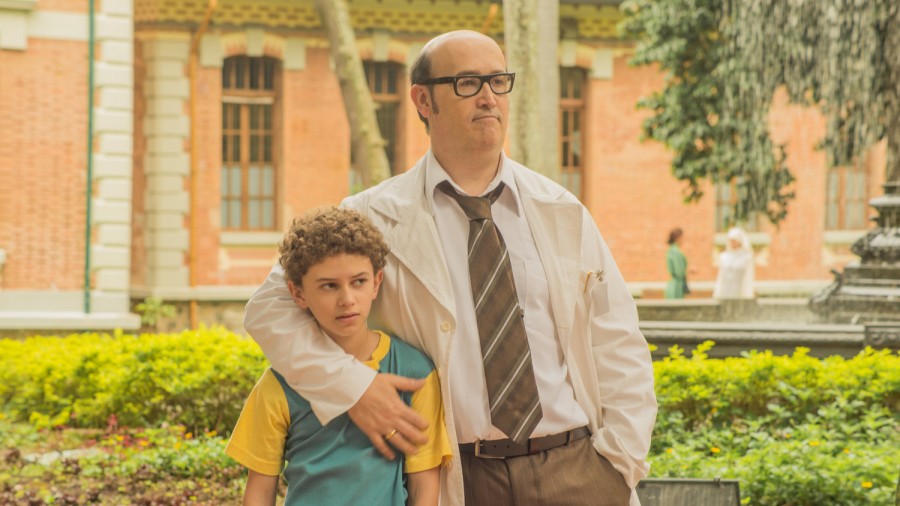Review: ‘Memories of My Father’: An unmemorable story about the forgotten
This drama film celebrates the story of an ordinary father who fights to help his family and the people of Colombia.
“Memories of My Father” was released on Nov.18, 2022 in the United States. The film is available in selected theaters. (Courtesy of Cohen Media)
December 13, 2022
The English title of the new film by Spanish director Fernando Trueba is “Memories of My Father,” but the better title for it is the original Spanish one, “El olvido que seremos,” which means “Forgotten We Will Be.” The difference between the two names highlights the central problem of the film: one name is sweet yet shallow, while the other is ambiguous yet moving. The film strives for the latter but mostly ends up as the former.
Héctor Abad Gómez was a doctor, writer and activist in the city of Medellín, Colombia. His life was first dramatized in the memoirs of his son, Héctor Abad Faciolince, “Oblivion,” from which the screenplay for this film was adapted. His son, a novelist and journalist, shares writing credit for this film.
The screenplay follows Faciolince, who is studying abroad in Italy when he gets a call that his father will be receiving an award for his lifetime of activism in Colombia. He returns home and the film flashes back to his childhood. We follow Faciolince as he grows up idolizing his father, taking in his lessons, admiring his activism and ideals, as well as dealing with a personal tragedy in his extended family.
The portrayal of the patriarch, Gómez, and his wife and daughters, is undoubtedly reverential. They are financially comfortable — there is one scene that implies that there might be some future financial trouble, but no consequences come of it. They are all happy with each other; the siblings never fight. They all support their father’s work. Even the personal tragedy that ends the flashback sequence is off-screen and moved on from quickly.
The most engaging parts in the flashback sequence come from seeing how the son is molded by his father. It’s possible that Faciolince can turn a critical eye on himself rather than on his family because he is the only character with real flaws in the film. He throws rocks at a Jewish family’s home, disobeys the nun that lives with his family and gets involved in a DUI that puts an elderly woman in physical therapy. Through each and every bad deed, his father is there to pick up the pieces and help him learn from his mistakes.
Gómez is an unremarkable seeming man, and that defines his character. He is nearly bald with just a ring of hair around his head, has glasses with thick black frames that sit crooked on his face and almost never speaks in anything other than a light congenial tone. He is without a doubt a great father, who gently guides his son with his funny, sweet lessons that range from his lack of belief in God, to why masturbation is perfectly normal, and how important vaccinations will be to helping poor Colombians.
By the end of the film, it’s nearly impossible to have a low opinion of the man, which can be the weakest part about his character and the film. It’s a very slight movie; it’s too apolitical, too sentimental and too inoffensive to be memorable. We never get a complete picture of Gómez’s worldview; he runs for mayor of Medellín at one point, and no part of the campaign is depicted other than the announcement in which he promises to be a centrist.
In marketing, the story is pitched as being about a man who rebels against the corrupt government and the paramilitaries of Colombia, but the film doesn’t touch on the violence and civil war that has plagued the nation for decades. Issues like governmental and academic corruption or collusion and leftist rebellions are hinted at, but the rough edges are sanded down and the brave stances that Gómez took are hidden from view.
The best defense of this approach is that the remarkability is the point. Gómez is a normal man. He was not a great leader or a revolutionary, but he was kind hearted, generous and a good father. The film paints a very simple portrait of him, most likely too simple to be true. The idea of a simplistic life being paid homage to is not inherently a bad thing, but it does leave one with lots to be desired with regard to the political complexities that could have been explored in the film.
Contact Justin Martinez at [email protected].
























































































































































